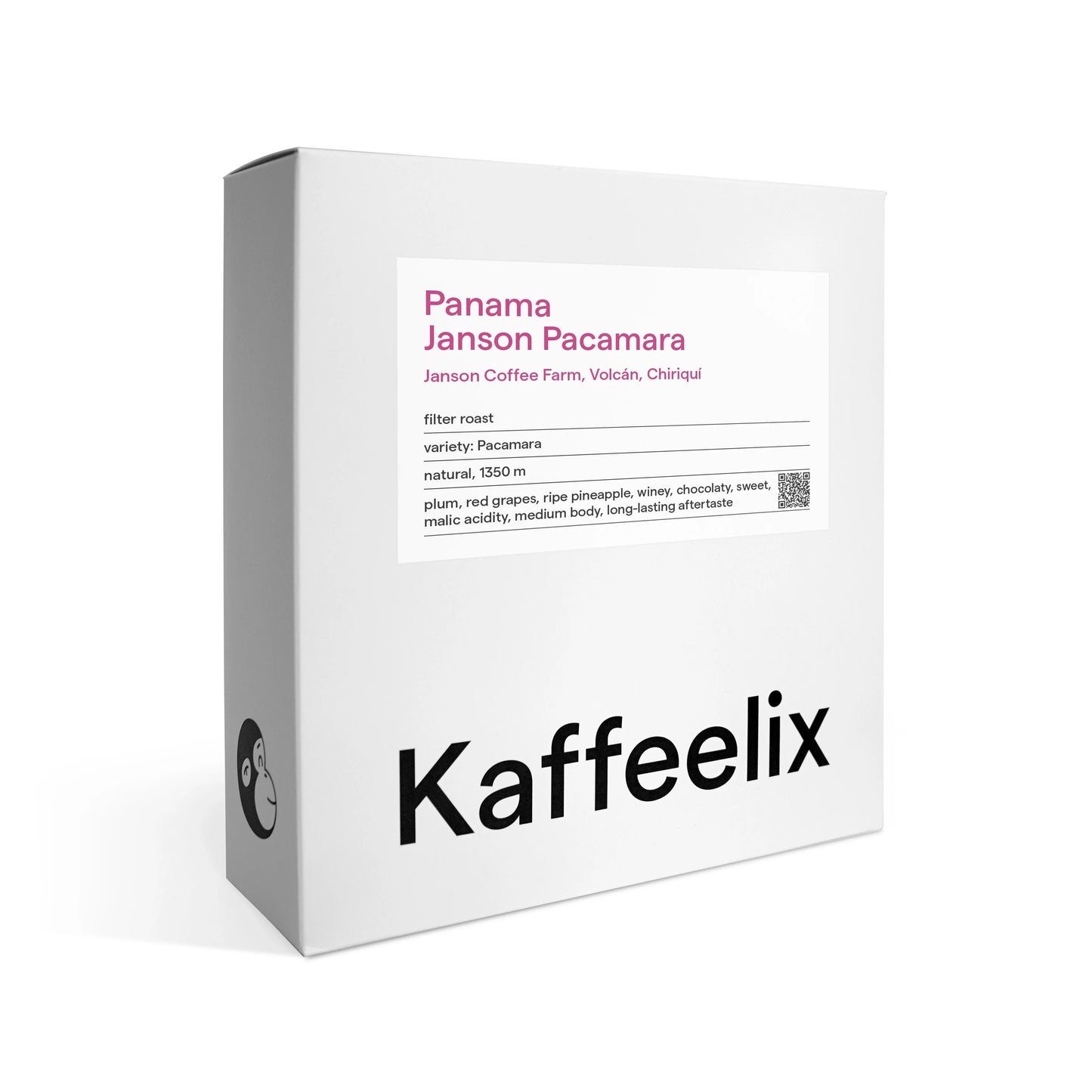KAFFEELIX COFFEE
KAFFEELIX - Panama Janson Pacamara | Panama - Natural - Pacamara
KAFFEELIX - Panama Janson Pacamara | Panama - Natural - Pacamara
 Origin: Panama
Origin: Panama
 Tasting Notes: Plum, Red Grapes, Ripe Pineapple, Winey, Chocolaty, Sweet, Malic Acidity, Medium Body, Long-lasting Aftertaste
Tasting Notes: Plum, Red Grapes, Ripe Pineapple, Winey, Chocolaty, Sweet, Malic Acidity, Medium Body, Long-lasting Aftertaste
 Process: Natural
Process: Natural
 Varieties: Pacamara
Varieties: Pacamara
 Farm: Janson Coffee Farm
Farm: Janson Coffee Farm
 Region: Volcan, Chiriqui
Region: Volcan, Chiriqui
 Elevation: 1350 masl
Elevation: 1350 masl
 Recommended Brew: Filter
Recommended Brew: Filter
 Roast Date:
Roast Date:
Couldn't load pickup availability
KAFFEELIX COFFEE is located in Polten, Austria
From KAFFEELIX
This Pacamara comes from Hacienda las Lagunas, located at 1350-1400 m above sea level in the Volcán region. Named after the lagoons in the area, the farm is located to the west of the Baru volcano; volcanic soil and natural springs characterize the landscape and terroir. The lots are surrounded by a nature reserve, which not only provides the habitat for a wide range of wildlife, but also protects the coffee plants from external influences.
About the processing: This Pacamara was fermented dry (natural) for 48 hours before being dried in the sun for eight days.
Janson farms is a family owned Hacienda established in 1941 (originally as a cattle farm), by Carl Axel Janson, an immigrant from Sweden. It was Carl’s sons Carl, Michael, Ricardo and Peter who established Janson Coffee in 1989 – with great success, as their coffees were awarded many times at Best of Panama and oftentimes used in Barista and Brewers Cup Competitions. Something we know very well: Felix scored second in the Austrian Brewers Cup 23 with a natural Geisha from Janson Coffee.
The family runs two farms in the Talamanca Mountain Range region on the slopes of the Tizingal and Baru volcanoes. Together with their employees, they cultivate an area of 100 hectares on which they grow the Geisha, Caturra, Catuai and Pacamara varieties. On both farms, the coffees are divided into small lots, which plays an important role in both traceability and quality control. These lots are separated by forest, which (as mentioned above) provides a habitat for the natural flora and fauna as well as protection from pests. This means that the use of pesticides and herbicides can be dispensed with.
The Beneficio (processing plant) was built in 1993 and planned exclusively for the processing of specialty coffee. This makes it possible to separate the coffee cherries according to origin and quality and process them separately. After processing, the green coffees are stored in a temperature- and humidity-controlled environment in order to preserve the quality of the beans as much as possible.
Share


